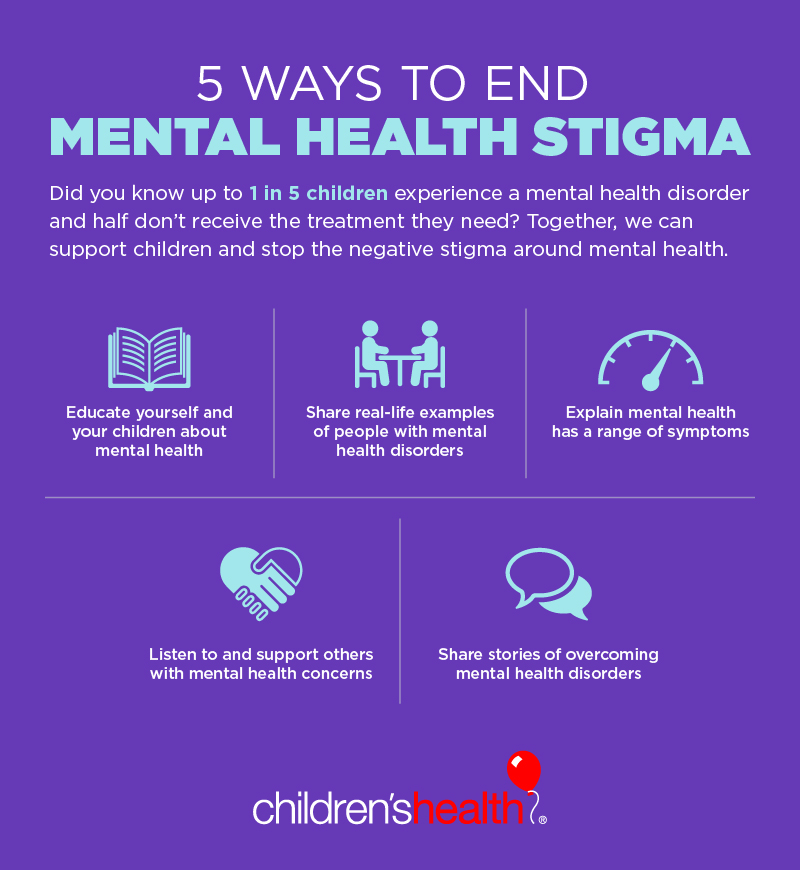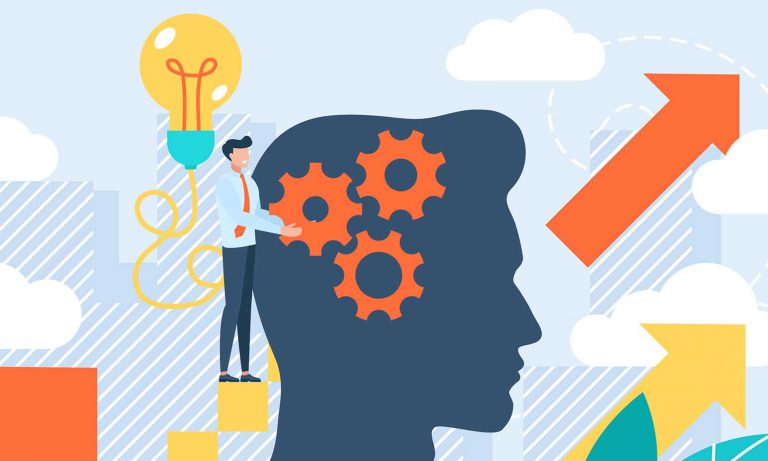Mental health and wellness
The Power of Mindfulness in Promoting Mental Health and Wellness
Mental health
and wellness are crucial components of a healthy and fulfilling life. With the fast-paced and stressful
lifestyle that many of us lead, it can be challenging to maintain good mental health. This is where mindfulness
comes in. Mindfulness is a practice that involves bringing your focus to the present moment and cultivating an
awareness of your thoughts, feelings, and physical sensations. It has been shown to have a positive impact on
mental health and wellness, reducing symptoms of anxiety and depression, and improving overall well-being.

In this article, we will explore the science behind mindfulness and its potential benefits for mental health and
wellness. We will also discuss practical tips on how to integrate mindfulness into your daily life, whether it
be through meditation, breathing exercises, or simply paying attention to your thoughts and surroundings.
Studies have shown that mindfulness can help reduce symptoms of anxiety and depression, and improve overall
well-being by reducing stress levels. This is because mindfulness helps you to become more aware of negative
thoughts and emotions and how they affect your mental state. By bringing your focus to the present moment, you
can start to see things in a more positive light, and learn to let go of negative thoughts and emotions.
In addition to its mental health benefits, mindfulness has also been shown to have a positive impact on physical
health. It has been linked to improved immune function, better sleep, and even reduced pain. By reducing stress
levels, mindfulness can help improve overall health and well-being, which is crucial for good mental health.
So, how can you start incorporating mindfulness into your life? There are many different ways to do so, but some of the most popular include:
Meditation: This is the most well-known form of mindfulness, and it involves sitting in silence and focusing on your breath and thoughts. You can start with just a few minutes each day and gradually increase the time as you become more comfortable.
Breathing exercises: This involves paying attention to your breath and using specific breathing patterns to help you relax and reduce stress.
Mindful movement: This involves incorporating mindfulness into physical activities, such as yoga or tai chi. By focusing on your movements, you can help reduce stress levels and improve mental clarity.
Paying attention to your thoughts : This involves becoming aware of your thoughts and feelings, and learning to let go of negative ones. You can do this by simply taking a few deep breaths and focusing on your breath, or by journaling about your thoughts and feelings.
In conclusion, mindfulness is a powerful tool in promoting mental health and wellness. By becoming more aware of your thoughts, feelings, and physical sensations, you can reduce stress levels, improve overall well-being, and achieve better mental health. So, start incorporating mindfulness into your daily life today, and experience the positive benefits for yourself.
The Mind Matters: A Guide to Mental Wellness
Mental wellness is a crucial aspect of overall health and happiness. Unfortunately, with the fast-paced and stressful nature of modern life, maintaining good mental health can be a challenge. But with the right tools and techniques, it is possible to achieve and maintain good mental wellness.

In this guide, we will explore the importance of mental wellness, and provide practical tips and advice on how to achieve it. We will discuss the effects of stress on mental health, and how to reduce and manage stress effectively. We will also explore the benefits of physical activity, healthy eating, and good sleep habits, and how they can positively impact mental health.
One of the most effective ways to improve mental wellness is through stress management. Stress can have a significant impact on mental health, and it is important to find ways to reduce and manage it. This can be achieved through a variety of methods, including exercise, meditation, and relaxation techniques.
Physical activity is another important factor in mental wellness. Exercise has been shown to have a positive impact on mental health, reducing symptoms of anxiety and depression and improving overall well-being. Whether it's a daily walk, a yoga class, or a gym workout, regular physical activity is a simple and effective way to boost mental health.
Healthy eating is also essential for good mental health. A diet that is high in fruits, vegetables, whole grains, and lean protein has been shown to improve mood and reduce symptoms of depression and anxiety. On the other hand, a diet high in processed foods and sugar can have a negative impact on mental health.
Finally, getting enough quality sleep is essential for good mental health. Lack of sleep can increase symptoms of anxiety and depression, and negatively impact mood and overall well-being. To improve sleep habits, it is recommended to establish a bedtime routine, avoid screens for at least an hour before bedtime, and create a relaxing sleep environment.
In conclusion, mental wellness is an important aspect of overall health and happiness. By reducing stress, engaging in regular physical activity, eating a healthy diet, and getting enough quality sleep, you can improve your mental health and achieve a sense of well-being. So, start making mental wellness a priority today, and experience the positive impact it can have on your life.
Breaking the Stigma: Mental Health Matters
Mental health is just as important as physical health, yet there is still a significant amount of stigma surrounding mental illness. This stigma can prevent people from seeking help, which can have serious consequences. It's time to break the stigma and start a conversation about mental health.
One of the biggest misconceptions about mental health is that it only affects a small portion of the population. In reality, mental illness affects one in four people globally. It is not a personal weakness, and it can affect anyone regardless of age, gender, or background.
Another common misconception is that people with mental illness are dangerous. This is simply not true. In fact, people with mental illness are more likely to be the victims of violence than the perpetrators. Breaking down these negative stereotypes and educating the public about the realities of mental illness is crucial to reducing stigma.
It's also important to remember that mental illness is treatable. With the right support and care, people with mental illness can lead happy and productive lives. Encouraging people to seek help and breaking down the stigma around mental illness can help people get the support they need.

In conclusion, breaking the stigma around mental health is crucial to improving the lives of those affected by mental illness. By raising awareness, educating the public, and reducing stigma, we can help people get the support they need and improve the overall mental health of our communities. So, let's start a conversation and make mental health a priority.
Mind Over Matter: Achieving Mental Balance
Mind Over Matter: Achieving Mental Balance for a Happy Life
Life can be stressful and overwhelming at times, leaving us feeling burnt out and unbalanced. But with the right mindset and approach, we can take control of our thoughts and emotions and achieve mental balance.
One of the key ways to achieve mental balance is to practice mindfulness. This involves paying attention to the present moment, without judgment, and accepting things as they are. By focusing on the here and now, we can reduce stress and anxiety and improve our overall well-being.
Another important aspect of mental balance is to prioritize self-care. This includes taking care of our physical and emotional needs, such as eating a balanced diet, getting enough sleep, and engaging in activities that bring us joy.

It's also important to cultivate a positive mindset and focus on the good in our lives. This can be as simple as taking time to reflect on what we're grateful for each day, or engaging in activities that bring us happiness and joy.
Finally, practicing relaxation techniques, such as meditation, deep breathing, and yoga, can help calm the mind and reduce stress. These techniques can help us connect with our inner selves and find peace and tranquility.
In conclusion, achieving mental balance requires a combination of mindfulness, self-care, positive thinking, and relaxation techniques. By focusing on these areas, we can take control of our thoughts and emotions and live a happier, more fulfilling life.
The Power of Positive Thinking: A Mental Health Journey
Our thoughts have a powerful impact on our lives, shaping our perceptions, attitudes, and emotions. And when it comes to mental health, positive thinking can make all the difference.
Positive thinking involves reframing negative thoughts and focusing on the good in our lives. This can help us overcome challenges, improve our relationships, and boost our overall well-being.
One of the key benefits of positive thinking is increased resilience. By seeing the glass as half full, we can better cope with life's obstacles and bounce back from setbacks. Positive thinking can also help us to cultivate a more optimistic outlook, leading to increased happiness and reduced stress and anxiety.

In addition, positive thinking can improve our relationships by helping us to communicate more effectively and build stronger connections with others. And by focusing on the positive aspects of our lives, we can cultivate a sense of gratitude, leading to increased contentment and fulfillment.
But positive thinking is not just a mental state, it's a habit that can be developed over time. Simple practices such as journaling positive experiences, focusing on solutions instead of problems, and surrounding ourselves with positive people can help us cultivate a more positive mindset.
In conclusion, the power of positive thinking is a journey to mental well-being. By reframing our thoughts and focusing on the good in our lives, we can improve our resilience, relationships, and overall happiness.
Finding Calm in the Chaos: A Guide to Mental Health and Wellness
In today's fast-paced world, it can be difficult to find peace and calm amidst the chaos. The constant rush of responsibilities, obligations, and distractions can take a toll on our mental health and well-being. However, with the right tools and techniques, it is possible to achieve mental wellness and find calm in the chaos.
One of the most effective ways to improve mental health and wellness is through mindfulness. Mindfulness involves being present in the moment, paying attention to thoughts and emotions without judgment, and focusing on the here and now. This simple practice can help reduce stress, improve mood, and promote a sense of calm.
Exercise is another important aspect of mental wellness. Regular physical activity has been shown to have a positive impact on mental health, reducing symptoms of anxiety and depression and improving overall well-being. Whether it's a daily walk, a yoga class, or a gym workout, incorporating physical activity into your routine can help you find calm in the chaos.
Healthy eating is also crucial for mental wellness. A diet that is high in fruits, vegetables, whole grains, and lean protein has been shown to improve mood and reduce symptoms of depression and anxiety. On the other hand, a diet high in processed foods and sugar can have a negative impact on mental health.

Finally, getting enough quality sleep is essential for good mental health. Lack of sleep can increase symptoms of anxiety and depression, and negatively impact mood and overall well-being. To improve sleep habits, it is recommended to establish a bedtime routine, avoid screens for at least an hour before bedtime, and create a relaxing sleep environment.
In conclusion, finding calm in the chaos is possible with the right tools and techniques. By incorporating mindfulness, exercise, healthy eating, and quality sleep into your routine, you can improve your mental health and well-being, and find peace amidst the chaos of modern life. So, start making mental wellness a priority today and experience the benefits of a calm and balanced life.
The Path to Mental Health and Wellness: One Step at a Time
Mental health and wellness are important aspects of overall well-being, but the journey towards improved mental health can sometimes feel overwhelming. However, the path to mental wellness doesn't have to be a daunting one. With a few small steps, you can begin to improve your mental health and feel better, both physically and mentally.

The first step towards mental wellness is to prioritize self-care. This means taking the time to do things that make you happy, whether it's reading a book, taking a relaxing bath, or simply going for a walk. Self-care is essential for good mental health, as it helps to reduce stress and improve mood.
Another important aspect of the journey to mental wellness is to practice gratitude. Focusing on the positive aspects of life and expressing gratitude for them can help to improve overall well-being and reduce symptoms of anxiety and depression. This can be as simple as writing down three things you're thankful for each day or keeping a gratitude journal.
In addition, maintaining strong social connections is crucial for good mental health. Spending time with friends and loved ones, participating in activities you enjoy, and volunteering in your community can help to build a supportive network and improve overall well-being.
Finally, it is important to seek help when necessary. Mental health challenges can be difficult to overcome alone, but reaching out to a mental health professional can provide the support and guidance needed to get back on the path to wellness.
In conclusion, the journey to mental health and wellness can be accomplished one step at a time. By prioritizing self-care, practicing gratitude, building strong social connections, and seeking help when necessary, you can take control of your mental health and improve your overall well-being. So, start taking those small steps today and experience the benefits of a life filled with peace and contentment.
Embracing Mental Health: A Guide to Total Wellness
Mental health is often overlooked, but it plays a critical role in our overall well-being. Without good mental health, it can be difficult to achieve total wellness and live life to the fullest. However, by embracing mental health and taking proactive steps to improve it, we can achieve a happier, healthier life.
The first step towards total wellness is to educate ourselves about mental health. Understanding what mental health is, the signs and symptoms of common mental health challenges, and the available treatments can help us take better care of our mental well-being.
Next, it is important to take care of our physical health, as it can have a significant impact on our mental well-being. Eating a balanced diet, getting regular exercise, and getting enough sleep are all critical components of good physical health and can improve mental health as well.

It is also important to practice self-care and prioritize our emotional needs. This can involve taking the time to do things we enjoy, setting boundaries, and saying no to commitments that cause stress or overwhelm.
Finally, it is crucial to seek support when needed. Whether it's talking to a trusted friend or family member, or seeking help from a mental health professional, having a support system in place can make a significant difference in our journey towards total wellness.
In conclusion, embracing mental health and taking proactive steps to improve it is the key to total wellness. By educating ourselves, taking care of our physical health, practicing self-care, and seeking support when necessary, we can achieve a happier, healthier life. So, start embracing your mental health today and experience the many benefits of total wellness.
The Importance of Self-Care: A Guide to Mental Health and Wellness
Self-care is an essential aspect of our lives that we often neglect in the pursuit of success, happiness, and stability. Our busy schedules and demanding responsibilities can leave us feeling drained and stressed, affecting our mental and physical health. That's why it's crucial to prioritize self-care and make it a habit in our daily routines.
Self-care encompasses various activities that help us maintain our mental, emotional, and physical well-being. It can range from simple acts like taking a relaxing bath, meditating, or exercising to more elaborate practices like therapy or self-reflection. Whatever form it takes, the goal of self-care is to give our minds and bodies a much-needed break from the stress and pressures of daily life.
Incorporating self-care into our routines can have a profound impact on our mental health and well-being. Regular self-care practices help reduce stress and anxiety, improve our mood, and boost our confidence and self-esteem. It also provides us with the space and time to reflect on our lives and reconnect with our inner selves, helping us gain clarity and perspective.

However, despite its numerous benefits, many people struggle to make self-care a priority in their lives. To help you get started, here are a few tips to help you integrate self-care into your daily routine:
1. Make time for self-care every day: Whether it's in the morning, evening or any other time, set aside some time each day to practice self-care.
2. Identify what self-care means to you: Self-care looks different for everyone, so find activities that resonate with you and make you feel refreshed and recharged.
3. Practice self-care activities that bring you joy: Whether it's reading a book, going for a walk, or practicing yoga, choose activities that bring you happiness and peace.
4. Set achievable self-care goals: Start with small, achievable goals and work your way up as you develop the habit of self-care.
In conclusion, self-care is a vital aspect of our mental health and well-being that should never be neglected. By incorporating self-care into our daily routines, we can improve our overall quality of life and lead happier, healthier lives. So, make sure to prioritize self-care, and take the time to take care of yourself, both mentally and physically.
Click here to get more interesting article




No comments:
Post a Comment